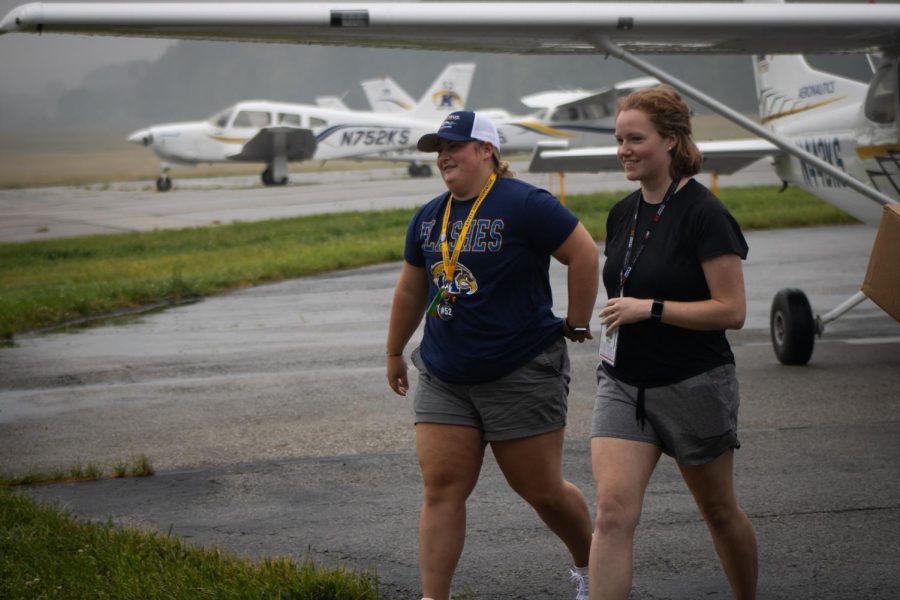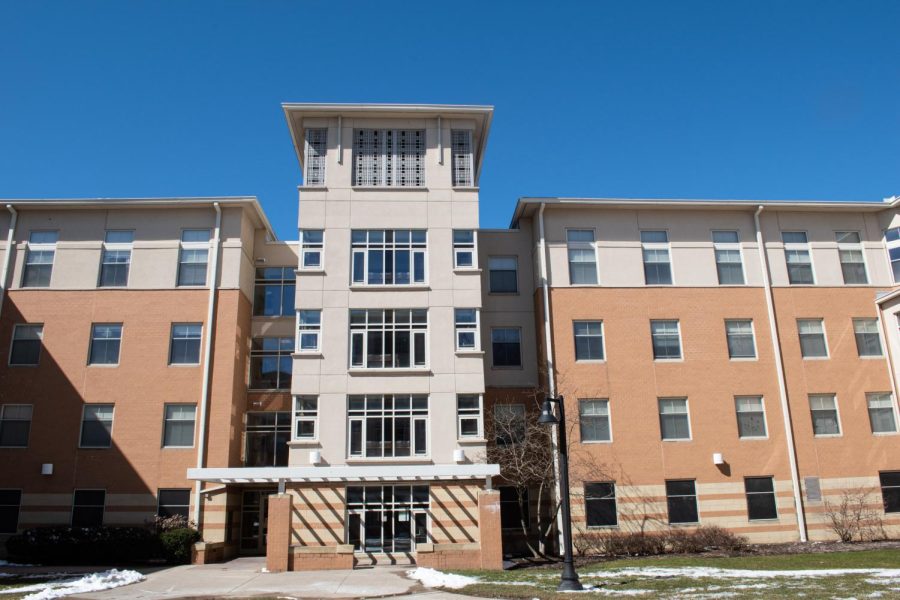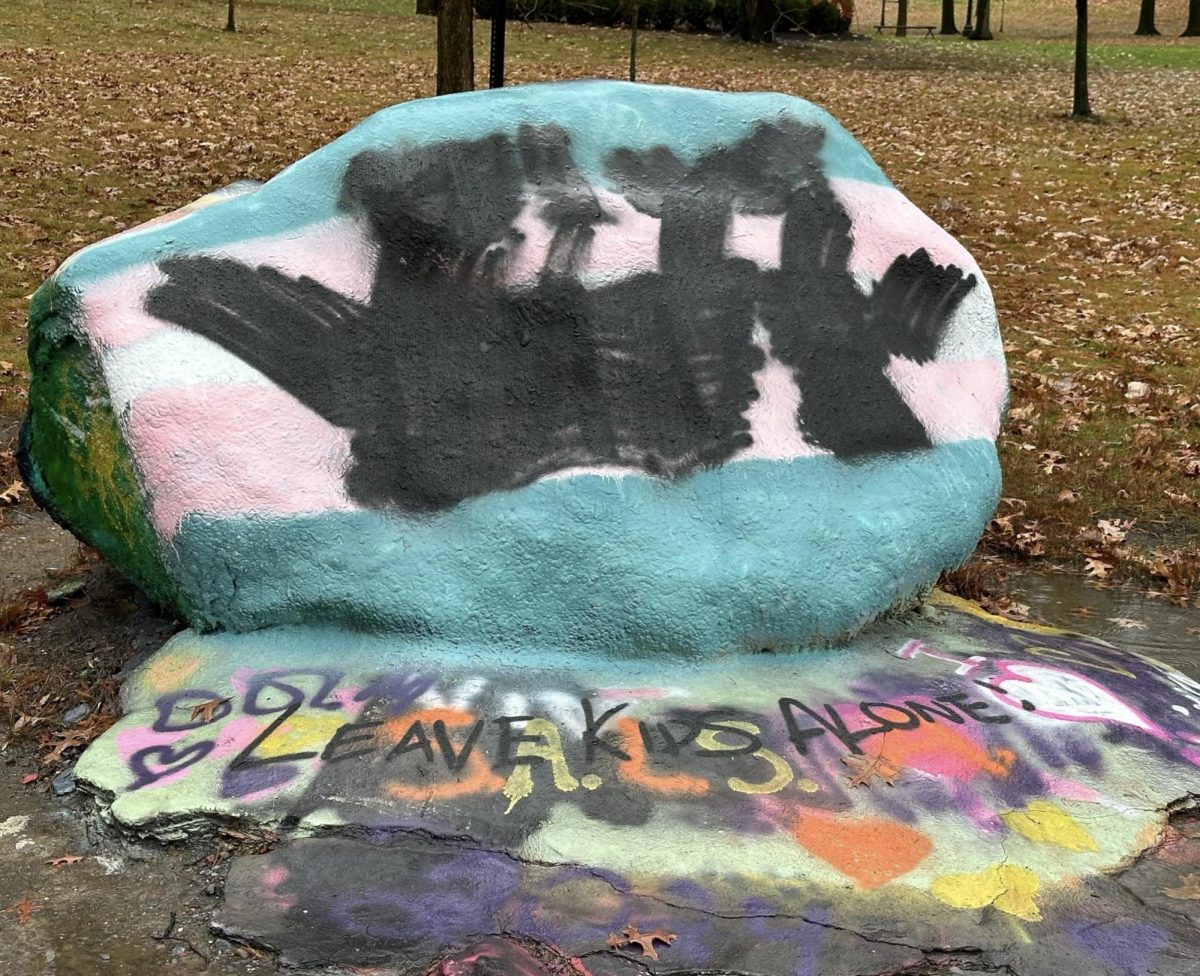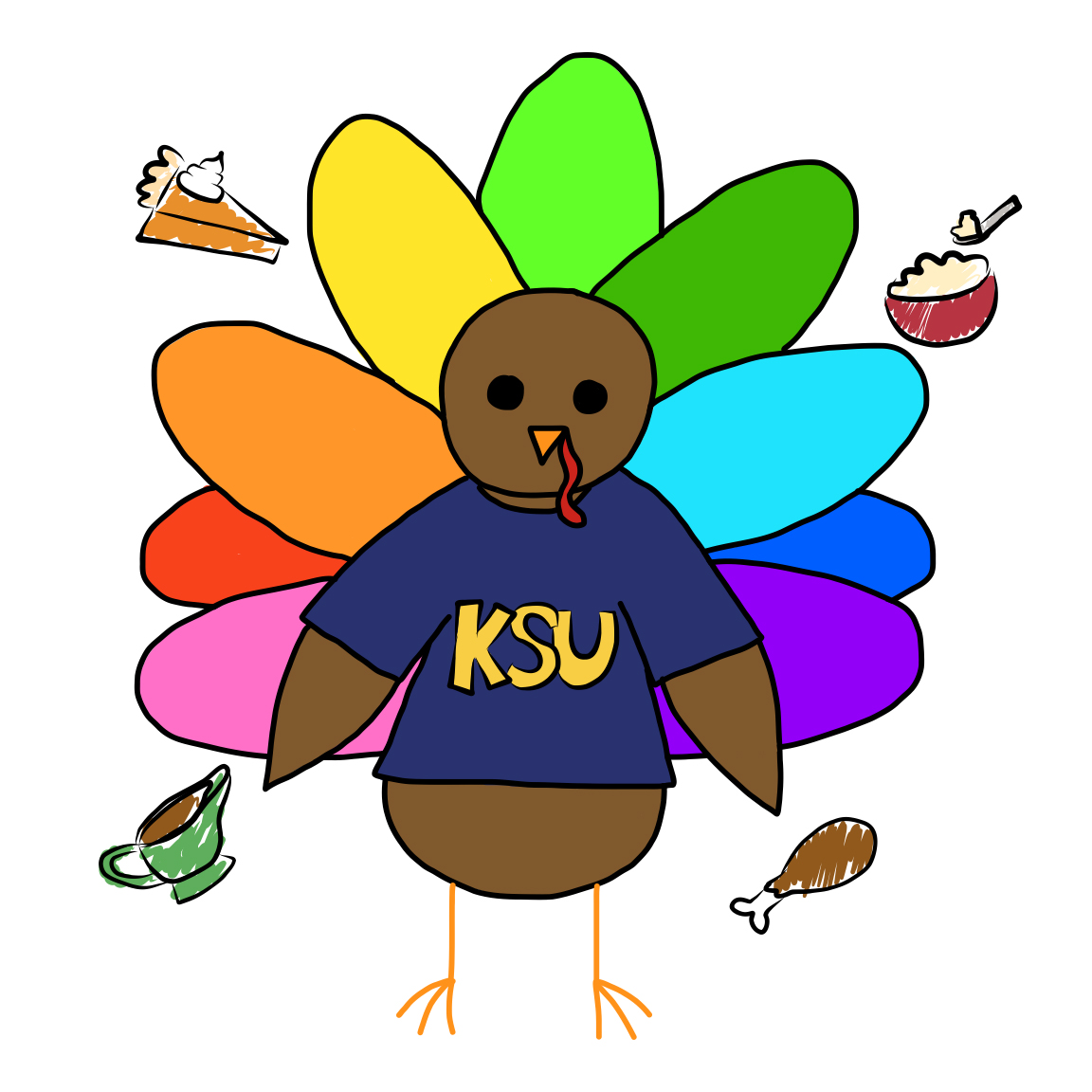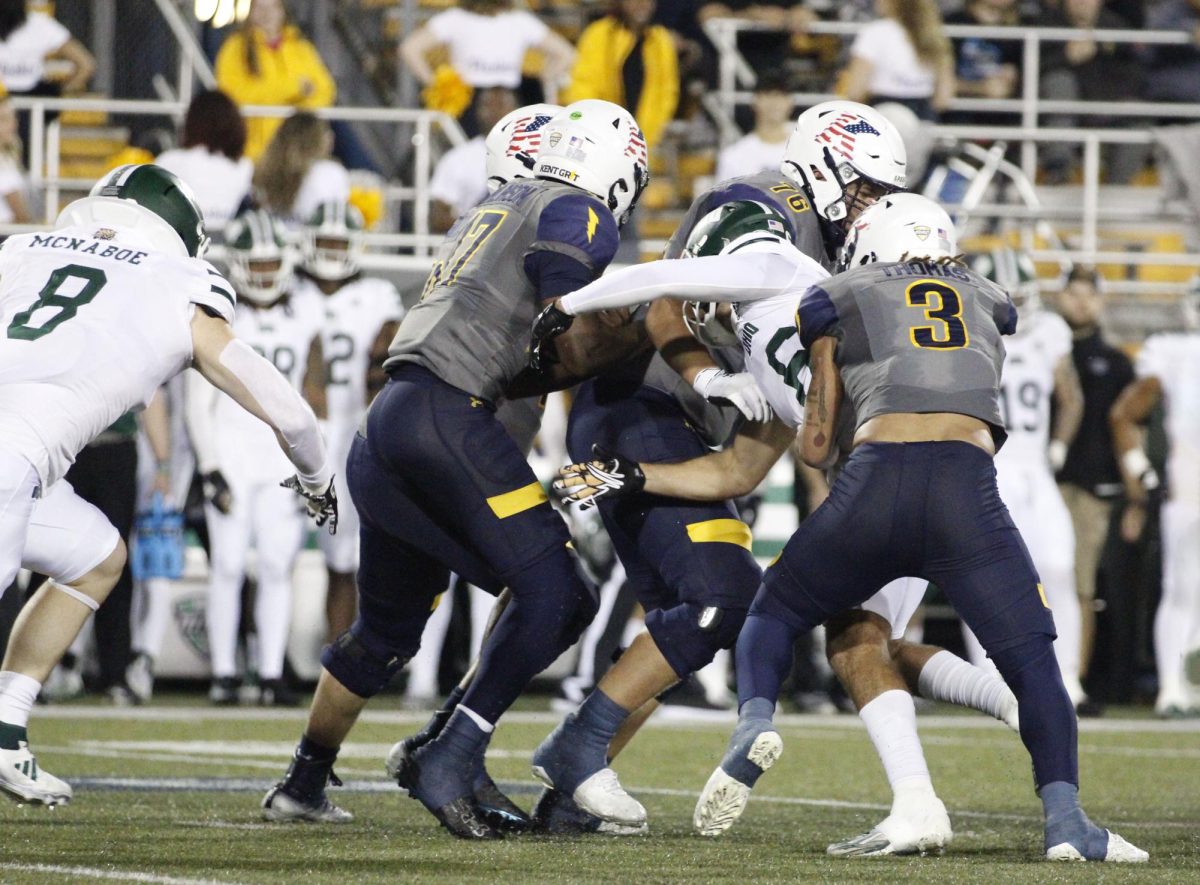Laura Wilson and Peyton Turner, better known as the Flying Flashes, made history in the 2023 Air Race Classic – an all-women, cross-country flight race. Their win made Kent State the only collegiate team to win the ARC twice, let alone in back-to-back years.
The 2023 race route went from Grand Forks, North Dakota, to Homestead, Florida. Forty-four two-pilot teams competed in the all-female competition where racers made 11 flybys in 10 states, spanning 2,685 miles over four days.
Returning champion and a 2022 Kent State alumna, 24-year-old Wilson took the veteran seat for this year’s race. She won the 2022 Air Race Classic, flying from Lakeland, Florida, to Terre Haute, Indiana, alongside teammate Alex Johnson.
The defending champ had all eyes on her for this year’s race, but she said the 2023 win all started with the selection of a rookie she could trust.
“The pressure was on for me because we had won last year, and I knew that there was going to be a lot of people watching us and seeing what we were doing,” Wilson said. “I was nervous taking off, but once we were in the air and we were just getting along so well, I thought, ‘Even if we don’t do well, we’re still going to have a great time doing this race together.’”
Carissa Neff, a Kent State alumna and lecturer in the College of Aeronautics and Engineering, is involved in the process of selecting teammates as a faculty advisor and ground support team member for the race. Neff was on the first team to represent Kent State in the ARC in 2016 and now provides support on strategy and logistics for the racers.
When selecting a student to fly with Wilson, Neff focused on finding the right personality to strengthen the team.
“At… interviews, they’re very much concerned with who is going to be sitting next to them on their five-day trip,” Neff said. “One, you want to have an enjoyable time with this person because you’re going to be in really close contact for a while, but two, working together in a crew environment and flying a plane, having a chemistry or a relationship in the airplane is really important for a successful partnership.”
Turner, a 21-year-old senior aeronautics major, stood out to Neff during the interview process.
“One of the questions we asked was, ‘How comfortable are you talking to media?’ And she goes, ‘Oh, the camera loves me.’ Her personality, her easygoingness, those were great traits we were looking for,” Neff said.
Preparation began in March when the new teammates registered the aircraft and the team. In April, they began strategizing the race route. In May, Turner took the crucial handicap flight.
“Peyton actually went up with another pilot. They flew around for a little bit and they recorded the average ground speed,” Wilson explained. “In the race, the average ground speed was what we were trying to beat. It’s not necessarily who crosses the finish line first wins the race, but it’s who beats their speed by the biggest margin.”
After two days of ground school in June, the Flying Flashes were off to the starting line in North Dakota.
Wilson and Turner didn’t have much time to bond before the first 10-hour flight in the cockpit of a 2020 Cessna Skyhawk 172SP. From hobbies and favorite colors to Wilson’s renditions of “Sweet Home Alabama” and “Take Me Home Country Roads,” the two became fast friends.
“Laura does have a state song for every single state,” Turner recalled. “We crossed 15 states and, by the last one, I was like, ‘Kill her, I’m done.’ Then we made it to Tennessee, and we still found another [song].”
Wilson and Turner learned to lean on each other during the highs and lows that came with unpredictable racing conditions and a particularly bad storm system. When it was time to make the tough calls, they made them together.
“We watched one team take off in the middle of a thunderstorm, and I was like, ‘should we be doing that?’ You get so caught up in the race that emotions just build, but we did a very good job at evening each other out,” Turner said.
Though emotions were running high, the two said it was always going to be safety first for the Flying Flashes.
“Kent trains us to be very safe pilots, and in that we knew we were going to fly the safest race that we possibly could,” Turner said. “When we were actually in the air, we didn’t care about winning, we cared about making it on the ground and getting back up the next day.”
Choosing safety kept the Flying Flashes grounded in Nebraska for almost an entire day, but flying the safest race also turned out to be the fastest. Wilson and Turner finished the route in 19 hours and 20 minutes, winning in the overall, collegiate, fastest Cessna and fastest Women in Aviation International team categories.
Christina Bloebaum, dean of the Kent State College of Aeronautics and Engineering, celebrated the pilots at a ceremony in the FedEx Aeronautics Academic Center at the Kent State Airport on July 20.
“The motto of our college is, ‘Dare Mighty Things’. … And boy, these ladies are the epitome of that,” Bloebaum said. “The drama of last year was that the team won by 7 seconds. This year, they gave us a little breathing room. It was 3 minutes and 10 seconds.”
Winning the Air Race Classic was all the more meaningful to Wilson and Turner as they flew alongside female aviators from all walks of life.
“There’s retired Air Traffic Control, some airline pilots, half the teams are flight schools,” Wilson said. “We got to see and meet a lot of different women from a lot of different backgrounds. It’s really cool to share the experience with all of them.”
The Flying Flashes hope their win will help to give the next generation of women their wings.
“Getting into aviation and the race in general has just given me all the more motivation to really inspire young girls and that this is an option,” Turner said. “Only 8% of airline pilots are women, but the numbers are growing and women are coming full-speed into aviation. Well, full throttle, I guess.”
Caroline Willis is a reporter. Contact her at [email protected].


